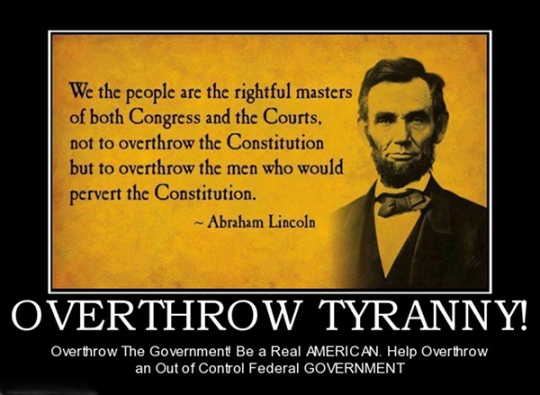 Of the 2.2 million people incarcerated in the United States, about half are parents, and at least 1 in 5 has a child-support obligation. For most, the debt will keep piling up throughout their imprisonment: By law or by practice, child-support agencies in much of the country consider incarceration a form of “voluntary impoverishment.” Parents like Harris, the logic goes, have only themselves to blame for not earning a living. But that may be about to change.
Of the 2.2 million people incarcerated in the United States, about half are parents, and at least 1 in 5 has a child-support obligation. For most, the debt will keep piling up throughout their imprisonment: By law or by practice, child-support agencies in much of the country consider incarceration a form of “voluntary impoverishment.” Parents like Harris, the logic goes, have only themselves to blame for not earning a living. But that may be about to change.

What does this tell you about overdue child support?
Republicans opposed to new regulations
The Obama administration has authorized a new set of regulations that would reclassify incarceration as “involuntary,” giving parents the right to push the pause button on child-support payments. The regulations are set to be published early next year and implemented by states by 2017.
Congressional Republicans oppose the new policy. They argue that it would undercut the 1996 welfare reform act, which pressed states to locate missing fathers and bill them for child support so taxpayers wouldn’t bear the full burden of their children’s welfare. (What idiots, the debt can’t be paid anyway.)
“I am fundamentally opposed to policies that allow parents to abdicate their responsibilities, which, in turn, results in more families having to go on welfare,” Senate Finance Committee Chairman Orrin Hatch, R-Utah, said in a speech in June on the Senate floor. Obama’s new regulations, he said, “would undermine a key feature of welfare reform, which is that single mothers can avoid welfare if fathers comply with child-support orders.”
Frances Pardus-Abbadessa, head of child-support enforcement for New York City, said: “The complaint we often hear is, ‘Why should incarcerated fathers, of all people, be the ones to get a break from their obligations — and at a cost to the taxpayer?’ “
Administration officials and their supporters counter that billing fathers while they’re in prison does little but dig them deeper into debt.
“Billing poor fathers doesn’t help poor mothers and kids become less poor,” said Jacquelyn Boggess, a poverty expert with the Center for Family Policy and Practice.
“All it creates,” she said, “is a highly indebted individual.”
Debt piles up
For Earl Harris, the problem was keeping up. He had a job in prison, cleaning the kitchen, but it paid only $7.50 a month — well short of the $168 the state of Missouri was billing him.
“Didn’t they know I was in prison?” he asks. “Weren’t they the ones that put me in there?”
When he got out in 2001, the unpaid amount was listed on his credit report — and pursued by an agency with the power to garnish 65 percent of his wages, intercept his tax returns, freeze his bank account, suspend his driver’s license and, if he failed to pay, lock him up again. By then, his debt had surged to more than $10,000.
Harris entered barbering school but soon returned to drug dealing and was thrown back into prison for nearly a decade. Meanwhile, his child-support debt swelled to more than $25,000.
Incarceration currently deemed ‘voluntary’
Harris’s plight is not unusual. The Marshall Project interviewed nearly three dozen noncustodial parents in 10 states; they all left prison owing between $10,000 and $110,000 in child support. Mostly fathers who are disproportionately black and poor, these parents faced prosecution for not repaying the debt, even after their children were grown.
And what they were able to pay did not necessarily go to their children or the mother. The state often kept their money as repayment for welfare, child care or Medicaid benefits that had been provided to the family while the dad was locked up.
To address the issue, the Obama administration began drafting new rules about four years ago. As currently written, the rules would forbid state child-support agencies from classifying incarceration as “voluntary,” granting parents the legal right to a reduction in payments while they’re in prison, a right that does not exist in 14 states.
The rules would require agencies to inform incarcerated parents of this right and would encourage agencies to provide a reduction in payments automatically. And they would urge states to transfer all payments directly to custodial parents — mostly mothers — and their children.
The administration proposal would provide about $35 million over the next five years to modernize the child-support system and to provide job training, job placement, bus fare, and other services to fathers facing prosecution for nonpayment.
The rule “will make sure that arrears don’t accumulate endlessly while a parent is incarcerated,” said Vicki Turetsky, President Barack Obama’s commissioner of child-support enforcement. “Our goal is to collect, month by month, for kids. We can do that when parents are employed, not in debt.”
Hatch and House Ways and Means Committee Chairman Paul Ryan, R-Wis., have introduced legislation to block the new rules, though neither lawmaker has pushed to advance the measure.
Ron Haskins, a child-support expert at the Brookings Institution, said he and other conservatives actually support parts of the new regulations. But they worry, he said, that the policy “could begin a long process of undermining the child-support concept, which they strongly believe in.”
The struggle after prison
Back in North St. Louis, Earl Harris, now 38, has put in his hours as an apprentice barber and is one written test away from getting his license. In the meantime, he is living in a halfway house and working at a factory across the river in Illinois, packaging Febreze canisters and Swiffer mops.
His hours are 4 p.m. to midnight, though he arrives an hour early to make sure he doesn’t lose his spot to another temp worker waiting outside the building in hopes of getting a shift. After work, he typically gets a cousin to drive him back to his dorm room, where he sleeps from 2 a.m. to 6 a.m. before heading to his daily support group for fathers.
By 8 a.m. the dads are circled up, talking about having kids and debt. They have come because the program helps them find a job, develop strategies for handling their arrears and work on their parenting skills. They also get free legal help. Many of them were incarcerated, almost exclusively for selling drugs, and everyone is wearing a jacket and tie, the uniform of employment.
One father, Louis Moore, said his debt soared to almost $60,000 while he was inside. Allan Newcomer’s is more than $68,000. “Everybody in the penitentiaries was getting the letters,” Newcomer said.
Lisl Williams, a former judge who now works with the fathers, said even if they spend their money on food, clothes or toys for their children, it does not reduce their debt. In many cases, she said, the whole family — the mother, aunts, uncles, cousins — chips in to help pay it, and then the money they pay goes to the government as repayment for welfare they received long ago.
Because the fathers don’t have large incomes to garnish, bank accounts to tap or property to seize, she adds, they are more likely to face re-incarceration for not paying their arrears.
‘I know I’m the bad man’ (Oh, really?)
Another dad, Corey Mason, said he was incarcerated and already racking up child-support debt when he got a notice saying he might have another child by a different mother. He was instructed to go to the medical wing, get a DNA swab and send it to the agency. When they confirmed his paternity, he started getting a new set of child-support bills.
Mason sent several handwritten letters to the agency explaining that he was in prison. He said he never got a response. (So who is really bad? You know!)
Now that he’s out, Mason has a job at the Marriott hotel downtown. He works the graveyard shift, cleaning, shutting down the bar, providing towels to customers who ask for extra. Because the child-support agency garnishes well over half his weekly paycheck, he turned down a recent promotion.
“I want to grow in the company. But I don’t want to work that much harder if they’re just going to take all of it to pay for history,” Mason said.
“I know I’m the bad man. But I’m working harder now than I ever have, and it’s like this is designed to keep me behind, backed up against the wall, in debt for the rest of my life.” (Hear the defeat and fear? That’s what they want!)
Obama: ‘Too many fathers M.I.A, AWOL’
Obama has frequently scolded the same absentee fathers who now stand to benefit from his regulations. “Too many fathers are M.I.A., too many fathers are AWOL, missing from too many lives and too many homes,” he told a Chicago audience in 2008 as a candidate for president.
Some fathers interviewed for this story had multiple children — one man said he had 12 — by different mothers. Many seemed less than eager to find employment. A few served time for domestic violence.
Some mothers say these men do not deserve to be freed of their debt.
“There’s a real tension here, as a matter of public policy,” said Joan Entmacher, an expert on family poverty at the National Women’s Law Center. “There are absolutely fathers who evade their responsibilities, saying, ‘Oh, I can’t pay that,’ and not even trying. We don’t want to simply reward that attitude.”
Even if a father is a deadbeat, however, the evidence is clear: Noncustodial fathers are far more likely to pay child support, and otherwise reengage with their families, if payments are manageable.
In a 2012 study by the Center for Policy Research, a private nonprofit research organization, fathers paid a much higher percentage of their monthly obligations when offered relief from unpayable state-owed debt. In studies in Maryland, Illinois and California, fewer than 15 percent remained noncompliant once the old debts were reduced and they were given a schedule of regular payments. And the fathers most likely to abide by “debt compromise” agreements were those who had been incarcerated.
Boggess, the child-support analyst, said that trying to collect the accumulated debt is “like squeezing an empty bottle and hoping something comes out.
“These fathers are poor, period. Their arrears are uncollectible, period,” she said. “They’ve never even met anyone who had $30,000.”
States taking action
Many states have already taken action. In 36 states and the District, incarceration is no longer officially considered “voluntary” impoverishment, and an imprisoned father is legally entitled to have his monthly child-support bill modified to as little as $50 a month or, in rare cases, stopped altogether.
But it is still up to the father to prove he is incarcerated, and then to file for the reduction. This involves navigating a maze of paperwork from prison, usually with no lawyer, irregular access to phones and, in many cases, an eighth- or ninth-grade education.
The most common pitfall, said Bo Twiggs, the director of UpNext, a program in New York City that helps recently incarcerated fathers, is that the incarcerated dad has no idea his child support is piling up because he isn’t getting the notices. The debt keeps compounding – and federal law prohibits the reduction of child-support bills retroactively.
“It’s hard for these fathers to understand that they can’t wait, they can’t adjust to life in prison before dealing with child support, that they need to take action immediately because the debt will be permanent,” Twiggs said. “That’s really counterintuitive.”
When these fathers get out of prison, they often don’t notice the debt until the state begins pursuing it, “which forces them to go underground instead of rejoining the formal economy,” said Turetsky, Obama’s commissioner of child-support enforcement.
Indeed, research shows that the two most important factors in a former prisoner’s successful reentry into the community are employment and positive relationships with family. Both of these are hindered by the aggressive pursuit of child-support arrears: Garnishing 65 percent of a father’s paycheck, so he is tempted to earn cash off the books; suspending his driver’s license so he can’t get to work; sending him bills that are so far beyond his capacity to pay that he keeps his distance from his family.
“I see it all the time,” Twiggs said: “Not reengaging with the family. Noncompliance with parole and child support. Under-the-table efforts at income. Self-defeat, high anxiety, general institutional distrust. All of that is triggered by this absolutely overwhelming, impossible feeling of debt.”
portions from the Atlanta Journal-Constitution
 Mothers who make no effort to identify father of their children could have a cap on the number of years in which they can go back and seek child support.
Mothers who make no effort to identify father of their children could have a cap on the number of years in which they can go back and seek child support.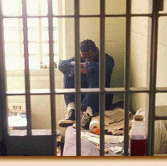 Nearly four decades of mass incarceration and over-criminalization have made the United States the world leader in incarceration and arrests. The number of Americans in federal and state prisons and jails has quintupled over the past four decades. As a result, nearly 2.3 million Americans are behind bars today. The U.S. incarceration rate is at more than six times the average across developed nations. “Communities of color” and “men of color” are hit hardest, with black men six times more likely and Latino men two-and-a-half times more likely to be incarcerated than white men.
Nearly four decades of mass incarceration and over-criminalization have made the United States the world leader in incarceration and arrests. The number of Americans in federal and state prisons and jails has quintupled over the past four decades. As a result, nearly 2.3 million Americans are behind bars today. The U.S. incarceration rate is at more than six times the average across developed nations. “Communities of color” and “men of color” are hit hardest, with black men six times more likely and Latino men two-and-a-half times more likely to be incarcerated than white men. While the effects of parental incarceration on children and families are well-documented, less appreciated are the family consequences that stem from the barriers associated with having a criminal record. A child’s life chances are strongly tied to his or her circumstances during childhood. Thus, these barriers may not only affect family stability and economic security in the short term but also may damage a child’s long-term well-being and outcomes.
While the effects of parental incarceration on children and families are well-documented, less appreciated are the family consequences that stem from the barriers associated with having a criminal record. A child’s life chances are strongly tied to his or her circumstances during childhood. Thus, these barriers may not only affect family stability and economic security in the short term but also may damage a child’s long-term well-being and outcomes.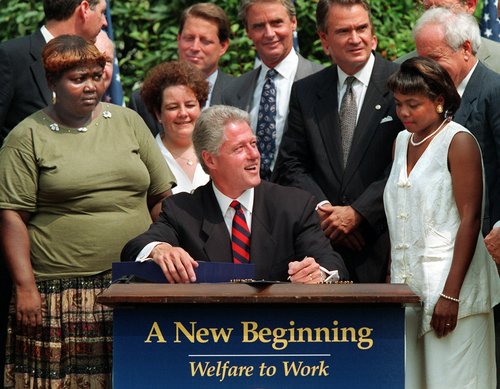

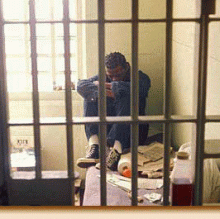 The
The  Of the 2.2 million people incarcerated in the United States, about half are parents, and at least 1 in 5 has a child-support obligation. For most, the debt will keep piling up throughout their imprisonment: By law or by practice, child-support agencies in much of the country consider incarceration a form of “voluntary impoverishment.” Parents like Harris, the logic goes, have only themselves to blame for not earning a living. But that may be about to change.
Of the 2.2 million people incarcerated in the United States, about half are parents, and at least 1 in 5 has a child-support obligation. For most, the debt will keep piling up throughout their imprisonment: By law or by practice, child-support agencies in much of the country consider incarceration a form of “voluntary impoverishment.” Parents like Harris, the logic goes, have only themselves to blame for not earning a living. But that may be about to change.
 A Canadian judge has called a Nova Scotia businessman and developer one of the “worst deadbeat” dads in Canadian history. The judge sentenced him to four years in prison, adding a court fine of $384,000. Gotta make sure the corporate court has a little extra owed to it. Eh?
A Canadian judge has called a Nova Scotia businessman and developer one of the “worst deadbeat” dads in Canadian history. The judge sentenced him to four years in prison, adding a court fine of $384,000. Gotta make sure the corporate court has a little extra owed to it. Eh? The National Post claimed that family court judge Theresa Forgeron (obviously an offended opportunistic feminist) said Vrege Armoyan’s “defiance spanned many years.” He owes a “shameful amount of arrears” racked up in a deliberate plan to hide money and to avoid paying support for his three children, ages 20, 18 and 15. (Shouldn’t two of those be emancipated?)
The National Post claimed that family court judge Theresa Forgeron (obviously an offended opportunistic feminist) said Vrege Armoyan’s “defiance spanned many years.” He owes a “shameful amount of arrears” racked up in a deliberate plan to hide money and to avoid paying support for his three children, ages 20, 18 and 15. (Shouldn’t two of those be emancipated?) As usual, the court debt is mostly imaginary. Armoyan was originally ordered to pay $29,000 a month in child support and alimony in 2012. He never paid the full amount. As a self-employed man of business, he is one of the few to claim that right. Instead, he opted to pay $9000 a month. The total arrears is $1,714,684.04, as well as owing over $1 million in court costs. I know who isn’t going to be in Canada – ever.
As usual, the court debt is mostly imaginary. Armoyan was originally ordered to pay $29,000 a month in child support and alimony in 2012. He never paid the full amount. As a self-employed man of business, he is one of the few to claim that right. Instead, he opted to pay $9000 a month. The total arrears is $1,714,684.04, as well as owing over $1 million in court costs. I know who isn’t going to be in Canada – ever. Naturally, a blood-sucking lawyer was quoted as being in full agreement with the court. Lawyers depend on the good favor of the court. They kiss the ring of a judge, a legalized mobster. Surprised? So why are you paying your lawyer so much to represent you? He must be good in bed, for someone anyway.
Naturally, a blood-sucking lawyer was quoted as being in full agreement with the court. Lawyers depend on the good favor of the court. They kiss the ring of a judge, a legalized mobster. Surprised? So why are you paying your lawyer so much to represent you? He must be good in bed, for someone anyway. The greed of the ex and the court is unrivaled, supported by the attorney of ex: “My client can’t afford groceries. She can’t afford to fly here for this hearing.” Perhaps she couldn’t afford the gas money to drive her limosine either. The bottom line? $9000 wasn’t enough for anyone. They pushed the issue and lost, putting themselves through some suffering.
The greed of the ex and the court is unrivaled, supported by the attorney of ex: “My client can’t afford groceries. She can’t afford to fly here for this hearing.” Perhaps she couldn’t afford the gas money to drive her limosine either. The bottom line? $9000 wasn’t enough for anyone. They pushed the issue and lost, putting themselves through some suffering. The judge declared that Armoyan was guilty of “contempt of court.” Neither he, nor his attorney showed at a hearing last Friday. Doubtless, the attorney wasn’t paid to show, yet, his defiance is declared by his absence (not the attorney, he’s still kissing the ring). He “strategically and tactically” avoided payment and fled the country to avoid the unbounded greed of his ex-wife and the courts. Good for him. It’s a freakin’ gravy train against men in this part of the world.
The judge declared that Armoyan was guilty of “contempt of court.” Neither he, nor his attorney showed at a hearing last Friday. Doubtless, the attorney wasn’t paid to show, yet, his defiance is declared by his absence (not the attorney, he’s still kissing the ring). He “strategically and tactically” avoided payment and fled the country to avoid the unbounded greed of his ex-wife and the courts. Good for him. It’s a freakin’ gravy train against men in this part of the world. Consider the predicament of Carnell Alexander.
Consider the predicament of Carnell Alexander. In 2013, a
In 2013, a  In the end, Hall
In the end, Hall 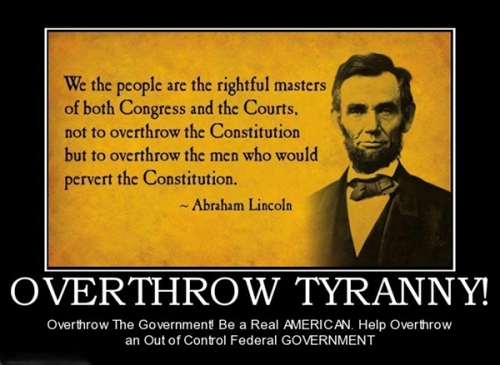

 In this day, depending on the local authority around you, the sheriff is seeking to shame anyone that is behind on child support for any reason. They post your name, address and face on a billboard or online with your local newspaper. To authorities, your debt of child support is a public issue that is all your fault. The reality is entirely different. The state persecutes you because of corporate policy. You see, each court, each government department is a corporation that seeks to make money off of you. Many of them have decided that you will be cuffed and slapped in jail, with the expectation of coercing you to pay up your child support. The court doesn’t even need to be right. Much of the time, the ‘judge’ isn’t right – not even close.
In this day, depending on the local authority around you, the sheriff is seeking to shame anyone that is behind on child support for any reason. They post your name, address and face on a billboard or online with your local newspaper. To authorities, your debt of child support is a public issue that is all your fault. The reality is entirely different. The state persecutes you because of corporate policy. You see, each court, each government department is a corporation that seeks to make money off of you. Many of them have decided that you will be cuffed and slapped in jail, with the expectation of coercing you to pay up your child support. The court doesn’t even need to be right. Much of the time, the ‘judge’ isn’t right – not even close. Actually, these “family courts” are wrong 100% of the time. American ‘citizens’ are supposed to have Constitutional guarantees that preclude evil treatment by the authority of courts, family judges and those that take their orders from them. Due process has become fiction. Most attorneys are fearful of standing up for real justice. That justice certainly isn’t oppressing non-custodial parents, even if they are ‘guilty’ before the law (that means what they want it to mean). For that matter, human rights have become fiction too – even as the Feds point a finger of accusation at China or Russia. The Feds have made themselves the holy arbiter of ‘human rights,’ the church of morality. In the case of any court-ordered child support, your human right is for you to pay up and shut up. That is called tyranny.
Actually, these “family courts” are wrong 100% of the time. American ‘citizens’ are supposed to have Constitutional guarantees that preclude evil treatment by the authority of courts, family judges and those that take their orders from them. Due process has become fiction. Most attorneys are fearful of standing up for real justice. That justice certainly isn’t oppressing non-custodial parents, even if they are ‘guilty’ before the law (that means what they want it to mean). For that matter, human rights have become fiction too – even as the Feds point a finger of accusation at China or Russia. The Feds have made themselves the holy arbiter of ‘human rights,’ the church of morality. In the case of any court-ordered child support, your human right is for you to pay up and shut up. That is called tyranny.